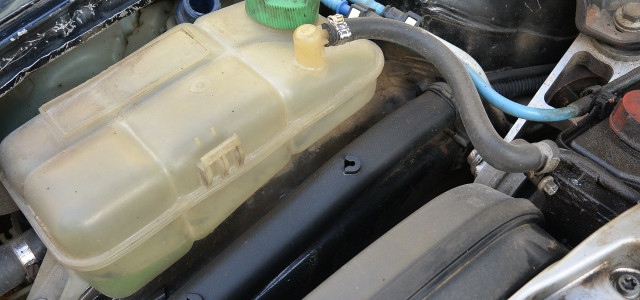Antifreeze is essential to running your vehicle safely and sustainably. But what is antifreeze made out of and how do we handle and dispose of it correctly? We explain how to dispose of antifreeze without harming yourself or the environment.
Antifreeze (also known as coolant) has a vital role in your car’s overall performance. On really cold days, the liquid helps keep the water in your car’s radiator and engine from turning to ice and those hot summer days, antifreeze helps prevent the water that keeps the radiator and engine running from boiling over.
Ideally you will need to change your antifreeze every 30,000 to 60,000 miles to ensure your vehicle is in peak form. Since antifreeze is toxic, it’s important to know how to dispose of antifreeze safely, in order to avoid harming yourself and the environment. Aside from that, it is illegal to dispose of toxic antifreeze incorrectly so doing the right thing from the outset is going to help you avoid any legal entanglements.
Is Antifreeze Toxic?

(Foto: CC0 / Pixabay / SinayKata)
According to the Environmental Protection Agency (EPA), antifreeze is toxic because it contains glycol, a chemical that can be harmful to humans and animals. There are two types of antifreeze, and they differ slightly in terms of their toxicity:
Ethylene Glycol Antifreeze
This is the more toxic of the two types of antifreeze available to drivers. It contains ethylene glycol, a chemical which, if ingested, can damage the brain, lungs, liver, and kidneys. In extreme cases this will ultimately lead to organ failure or death if left untreated. Ethylene glycol can also cause birth defects as it has been known to damage the reproductive system. Probably most concerning is the fact that this type of antifreeze has a sweet smell and taste that could make it appealing to pets and children. It is therefore imperative that you store this safely out of reach at all times.
Propylene Glycol Antifreeze
This antifreeze employs a substitute to the aforementioned ethylene glycol component with a substance called propylene glycol. Although less toxic than ethylene glycol, propylene glycol still needs to be handled with care as it can still cause harm to your health if ingested in large quantities.
Handy Tips For Disposing of Antifreeze Safely



(Foto: CC0 / Pixabay / Bru-nO)
1. Don’t pour antifreeze down the drain or on the ground.
As explained previously, antifreeze is highly toxic, so pouring it down the drain or on the ground outside is clearly a big no-no. Aside from potentially exposing yourself to harm, antifreeze will inevitably wreak havoc on local plants, animals and aquatic life once it enters the drainage system.
2. Check if your antifreeze is used/diluted or unused/undiluted.
Diluted and undiluted antifreeze are different and are subject to slightly different disposal methods. Antifreeze that is used and/or diluted may contain heavy metals, and it needs to be handled separately and disposed of accordingly.
3. Flush coolant from your engine.
Wearing protective gloves to stop the antifreeze from making direct contact with your skin, place a large drain pan under the car engine’s draining points to collect the antifreeze. This container will help you collect all of the antifreeze without any spillage or run-off. You will need to refer to your owner’s manual to determine where these draining points are for your type of vehicle, but these are normally quite easy to access.
4. Pour the antifreeze into a plastic sealable container.
The antifreeze needs to be packaged securely during the trip to the disposal facility, so avoid using a glass container as you only run the risk of breaking it during transit. A plastic bottle (or bottles) with a lid that will seal tightly is ideal for this step. You may even be able to repurpose the container your antifreeze first came in if you still have it at hand.
5. Dispose of antifreeze at a recycling center, gas station, or auto repair shop.
Gas stations, recycling centers, and even auto repair shops will be happy to help you get rid of your old antifreeze. Leaving it to the professionals is by far the safest means of disposal. As outlined earlier, used and/or diluted antifreeze has different disposal requirements from unused and undiluted antifreeze. Call ahead or check online beforehand to make sure the facility you’ve chosen accepts the type of antifreeze you want to dispose of.
Here is just one handy source online, where you can locate the right antifreeze recycling station close to your area: Earth911
Read on:
- How Do You Dispose of Batteries Correctly?
- How to Dispose of Cooking Oil Responsibly – 4 Tips
- The 10 Main Causes for Water Pollution
Do you like this post?







